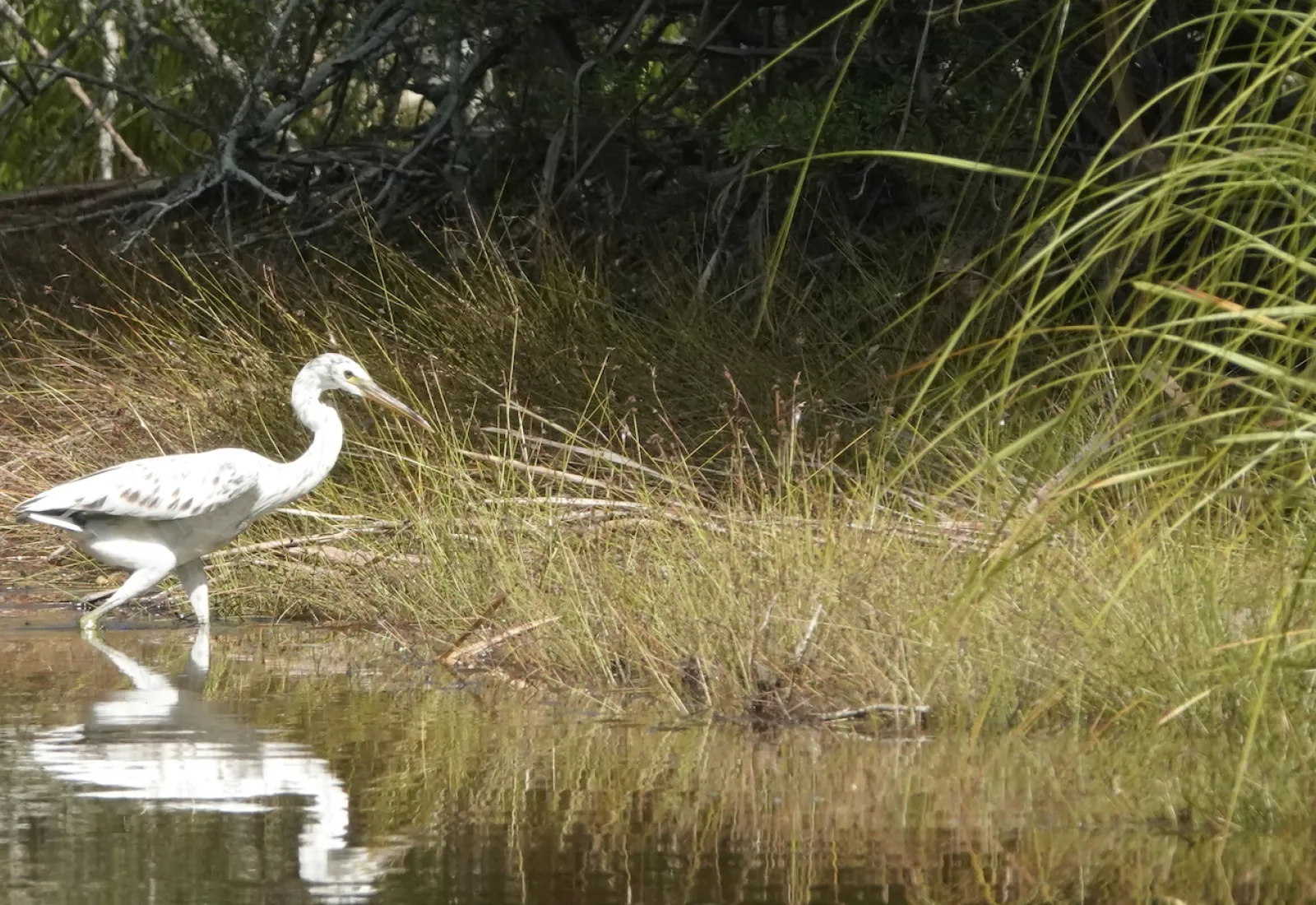One of the most interesting birds on Tetiaroa is the Pacific Reef Egret, Egretta sacra. It is the only resident shorebird on the island and is commonly seen on all of the motu.
Called ‘otu’u in Tahitian or kotuku in Paumotu, this is a medium size egret, 57 to 66 cm in length, with a wingspan of around 1 meter.



One of the most interesting things about this species is that individuals can be either dark gray or white. On Tetiaroa the white morph is more common, as it is on all atolls.
On the high islands of Moorea and Tahiti, the gray morph is much more common. On Tetiaroa we also see a mottled gray-white morph, which may be a juvenile version of the white morph. Both white a gray morphs have gray-yellow bills and legs, and yellow feet.
The Reef Egret is native to the tropical and subtropical western Pacific – coasts of China, Japan, SE Asia, Australia, and Pacific islands all the way East to the Tuamotu and Marquesas Archipelagoes.
One study of the geographical variation of the white and gray morphs showed that the white morph exists only with the presence of coral reefs, while the gray morphs are present throughout the range.
Reef Egrets nest from September to December, and nests built usually in trees are made of sticks, and leaves, and seaweed picked up on the beaches.

They lay 2-3 pale greenish-blue eggs, and both sexes incubate until the eggs hatch 25-28 days later. The chicks are fed by both parents and are fledged and ready to fly 5-6 weeks after hatching.
Photo credit (on right): Tom Backlund


While hunting along the beaches they can be quite active, moving quickly to snatch fish in the shallows, or chase a ghost crab into its burrow. In shallow water they sometimes use their wings, spread to create shade, to lure fish close enough to catch. They also use a technique called freeze-hunting where they stand perfectly still for minutes at a time, and then extend their neck and bill in a lightning-quick strike to catch their prey.
Photo credit: Michael Lynch


